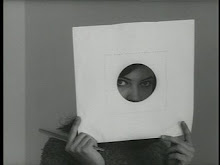There are of course too many files, too many entries housed within, or at least lending their presence to, the electronic literature collection (http://collection.eliterature.org/1/) for me to have been able to peruse them all. To be honest, even if I were to have had the time, I'm not sure that I would have enjoyed the experience. To be sure, there were several entries that caught my interest for one reason or another. I will discuss one or two of those more intriguing/enjoyable digital literature creations later.
The fact is that within the scope of digital literature, which is such an enormously malleable and experimental genre, it is easy to find pieces or creations that rub one the wrong way. I absolutely hated a few of the sites I initially explored. Among these, "Deviant: The Possession of Christian Shaw" was a piece that lost my interest and my desire to understand its ultimate nature almost immediately. I found (surprising myself in fact) that without some sort of words to guide me, whether one small phrase or entire paragraphs, I was not anchored by anything in the "text" and felt no motivation to continue randomly clicking or rolling over objects within the "interactive" image interface. In short, I could not see the point of the program, regardless of whether there was some revolutionary or avant-garde significance that I was overlooking. A question began to float to the surface of my mind the same way the answer in a magic eight ball slowly floats through the blueish liquid to finally press up against the ball's plastic window. How can a work be literature if I doesn't contain words? Does "literature" not pertain to that which is written? I can understand that a piece using words in a new and innovative way might incorporate a wide range of imagery or visually creative material, but at least in the case of "Deviant," I was left wondering why it was included in the collection. I thought the images themselves--the digital design--and the little movements they acted out were charming in a way, cute perhaps. But I was waiting for a final point, or some sort of meaning--some closure--as well as some words, and I never got them.
Then again, now that I think about it, perhaps that was the point of the piece. Maybe the lack of closure (normalcy in a way) and the pointlessness of the click/roll-over actions were a reflection of the main word in the piece's title: "Deviant."
On another note, the piece "Tao" by Alan Sondheim and Reiner Strasser was one that, although extremely minimalistic in a sense, struck me as something beautiful. In essence, this piece reflected its name well, existing as a combination of dualities. The alliterative nature of the poetic lines, as well as the repetition of words like "earth," "blown," and "stars" help to reinforce an interchangeable ongoing flow of the piece as the words move in a linear fashion across the screen, ending in the "invisible," the intangible. This flow is also enhanced by the movement of the car itself in the movie frame along with the movement of the--are they flags? plastic bags? a napkin like in the movie American Beauty?--object blowing in the wind. The movie frames can be changed so that destination becomes irrelevant in a way, yet meaningful in every different combination that is created. The movement itself becomes significant, yet not overwhelming. (Or is it overwhelming? The user has no real control over what ultimately happens in the flow. One must submit to the "overwhelming" predestined movement of the piece--the digital micro-universe for the moment.) Finally, the shakuhachi music--subtle, yet seemingly synchronized with the erratic movement of the windswept object and the pavement passing beneath the the car--helps one to connect to the piece, while also helping the piece--the images, the words, to connect to each other.
I was particularly interested that the authors chose to use shakuhachi music, something I am familiar with only because my uncle made a shakuhachi of his own and I have enjoyed listening to his flute-like dabbling in the past.
....
Fin.
Thursday, January 31, 2008
Subscribe to:
Posts (Atom)
